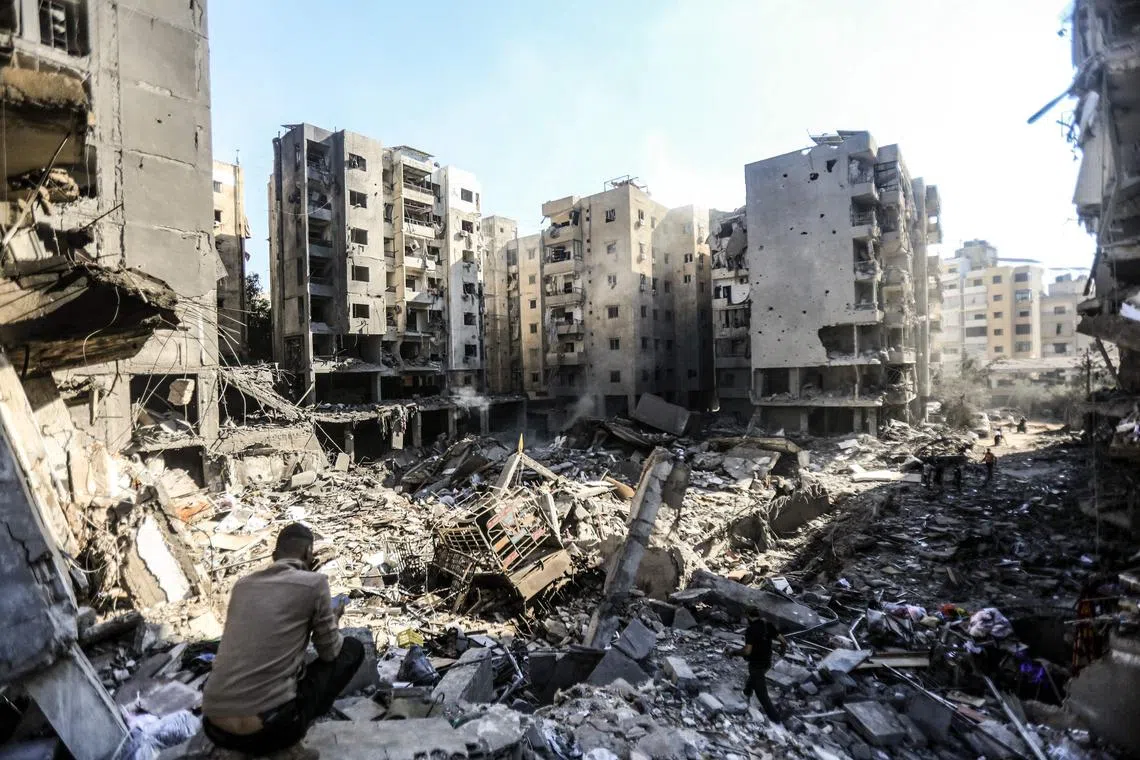Israeli attacks on Lebanon health sector should be probed as war crimes, says Amnesty
Sign up now: Get ST's newsletters delivered to your inbox

Israel killed Hezbollah chief Hassan Nasrallah in an air strike in Lebanon, in September 2024.
PHOTO: AFP
Follow topic:
BEIRUT - Amnesty International on March 5 said Israel’s attacks on ambulances, paramedics and health facilities during its recent war with Hezbollah should be investigated as war crimes.
A Nov 27 truce agreement largely halted more than a year of hostilities
During the conflict, the Israeli military accused the Iran-backed group of using ambulances belonging to the Hezbollah-affiliated Islamic Health Committee for transporting fighters and weapons – accusations the group denied.
According to Amnesty, “the Israeli military’s repeated unlawful attacks during the war in Lebanon on health facilities, ambulances and health workers, which are protected under international law, must be investigated as war crimes”. It urged the Lebanese government to provide the International Criminal Court with “jurisdiction to investigate and prosecute crimes within the Rome Statute committed on Lebanese territory, and ensure victims’ right to remedy”.
The Israeli military did not immediately respond to an AFP request for comment on Amnesty’s report.
In December, Lebanon’s then Health Minister Firass Abiad said that during the hostilities, there were “67 attacks on hospitals, including 40 hospitals that were directly targeted”, killing 16 people.
“There were 238 attacks on emergency response organisations, with 206 dead,” he said, adding that 256 emergency vehicles including fire trucks and ambulances were also targeted.
Amnesty said it investigated four Israeli attacks on health facilities and vehicles in Beirut and south Lebanon from Oct 3 to 9, 2024,
“Amnesty International did not find evidence that the facilities or vehicles were being used for military purposes at the time of the attacks,” the statement said.
The rights group said it wrote to the Israeli military in November with its findings but had not received a response by the time of publication.
“The Israeli military has not provided sufficient justifications, or specific evidence of military targets being present at the strike locations” to account for the “repeated attacks, which weakened a fragile healthcare system and put lives at risk”, Amnesty said.
According to the Lebanese authorities, more than 4,000 people were killed in the hostilities.
Swathes of the south and east and parts of Beirut’s southern suburbs were heavily damaged in the Israeli bombardment, with reconstruction costs expected to top US$10 billion (S$13.4 billion), the Lebanese authorities have said. AFP

